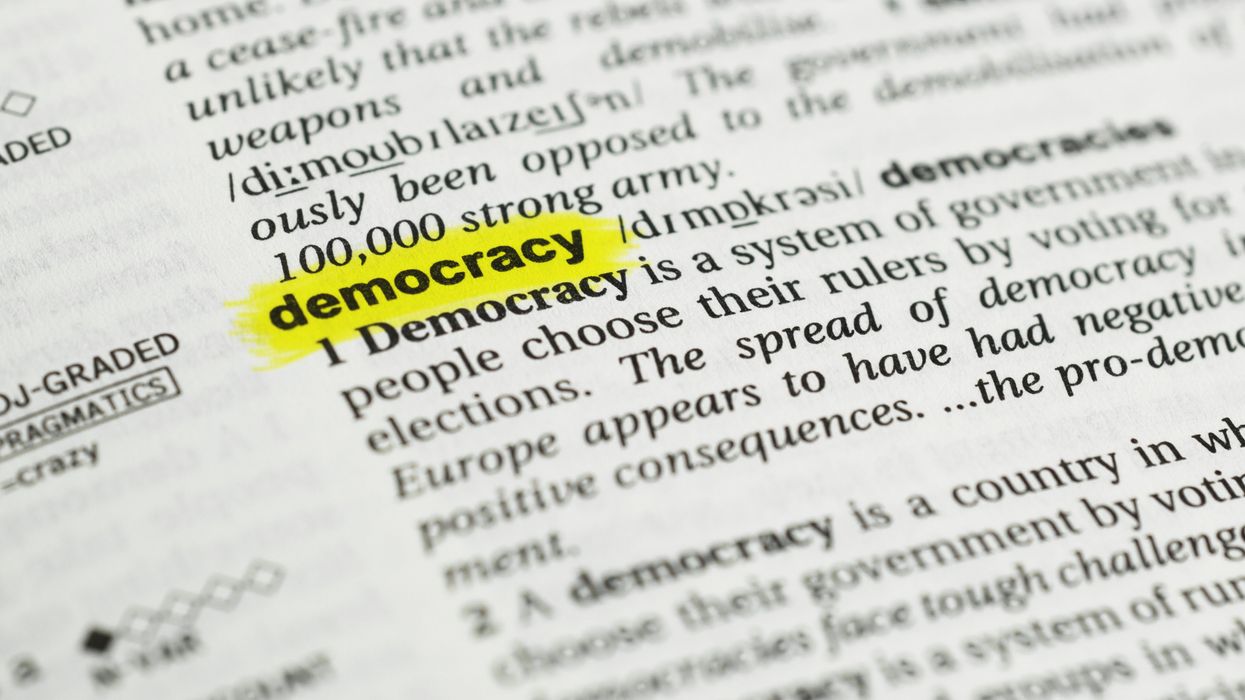Kristina Becvar and David L. Nevins, co-publishers of The Fulcrum, announced recently that effective Jan. 1, Hugo Balta, The Fulcrum’s director of solutions journalism and DEI initiatives, will serve as executive editor. What follows is a message from Balta about his new responsibility.
In the aftermath of this year’s contentious presidential election, it is imperative to heal a democracy fractured by polarization, emphasizing the importance of dialogue, accountability, and inclusive and transparent governance.
Journalism plays a pivotal role in upholding democratic values and ensuring the health of democratic systems. As our country faces complex challenges, the significance of a free and independent press becomes increasingly evident.
The Fulcrum fosters public discourse by providing a platform for diverse voices and opinions. The national news outlet amplifies marginalized perspectives through news articles, opinion pieces and investigative reports, fostering an inclusive dialogue vital for a thriving democracy.
As The Fulcrum’s executive editor, I’m grateful for the opportunity to take a collaborative approach to paving the path forward to a more informed and engaged citizenry, fortifying the foundations of democracy.
A solutions journalism approach to covering democracy (not politics)
While many newsrooms extensively cover politics, there is a lack of focus on democracy itself — the electoral and governmental systems that shape our nation. So, how can we meet this demand, especially after a divisive election year? The answer lies in embracing solutions journalism.
Earlier, I wrote about the concept of solutions journalism, which aims to foster an environment that tackles the challenges faced by our democracy by promoting civic engagement, equity and constructive discourse. By shifting the focus from merely reporting on problems to highlighting responses (to those problems), thought leaders and journalists can contribute to a more informed and empowered populace.
People across the country feel frustrated and disillusioned with U.S. politics and the journalism that reports on it. Coverage in mainstream media often focuses on extremes, poll numbers, accusations and sensational statements. My charge is to captain The Fulcrum in providing people with what they truly desire from news outlets: information that helps them comprehend and navigate the complexities of the world around them.
Complicating The Narrative
Many people's emotions are running high right now. Elections often bring out a wide range of feelings, whether pride and optimism for those who are pleased with the results or disappointment and frustration from those who aren’t. After a long and grueling election season, we need to connect with and not avoid one another.
In times of high conflict, it's common for people to split into two opposing groups and view each other negatively. This can lead to generalizations and name-calling, which often dehumanize the other side and can escalate tensions. A more productive approach is to seek a deeper understanding of the complex factors that contribute to different perspectives. Doing so can help reduce polarization and foster more constructive dialogue.
As a solutions journalism practitioner, I leverage Complicating the Narratives, which helps journalists find new ways to report on controversial issues and polarizing politics. It draws on the experience of experts in conflict mediation. When reporters use these strategies, they listen better, ask more revealing questions, effectively introduce opposing viewpoints and embrace nuance in their reports. They learn to tell more accurate, richer and fuller stories.
Off The Sidelines
Journalists are trained to view their role as chroniclers of history rather than participants in it. This “on the sidelines” approach is rooted in the belief that involvement could compromise their objectivity, potentially positioning them as active participants rather than impartial observers of the situations they are reporting on.
Objectivity proposes that there are two sides to every story. However, there are many perspectives, and the ones most often left out are from marginalized communities whose representation is absent from newsrooms. That is why I subscribe to transparency in the pursuit of truth.
Acknowledging my biases, I surround myself with people who do not share the same experiences, backgrounds and ideologies. We ensure fair and accurate coverage by “getting on the playing field” and engaging in discourse and debate about story coverage, focus, those who tell the stories and those who are heard.
Journalists are tasked with assisting the public in engaging in self-governance in a responsible and informed manner. This responsibility underscores the importance of a free and independent press, recognized as vital to democracy and enshrined in the First Amendment to the U.S. Constitution. The founders understood that the success of the American republic's democratic experiment depended on the unrestricted exchange of information and ideas.
While the road to recovery may be challenging, a collective commitment to understanding and cooperation can foster a more resilient and unified democracy.
As The Fulcrum’s executive editor, I am equal to the task of highlighting how journalism contributes to strengthening democracy and its functions and challenges in an ever-evolving media landscape. This function is essential for an informed citizenry, as it allows the public to make educated decisions and engage meaningfully in civic life.
Ultimately, a democracy's strength lies in its ability to adapt, listen and grow in the face of adversity.




















